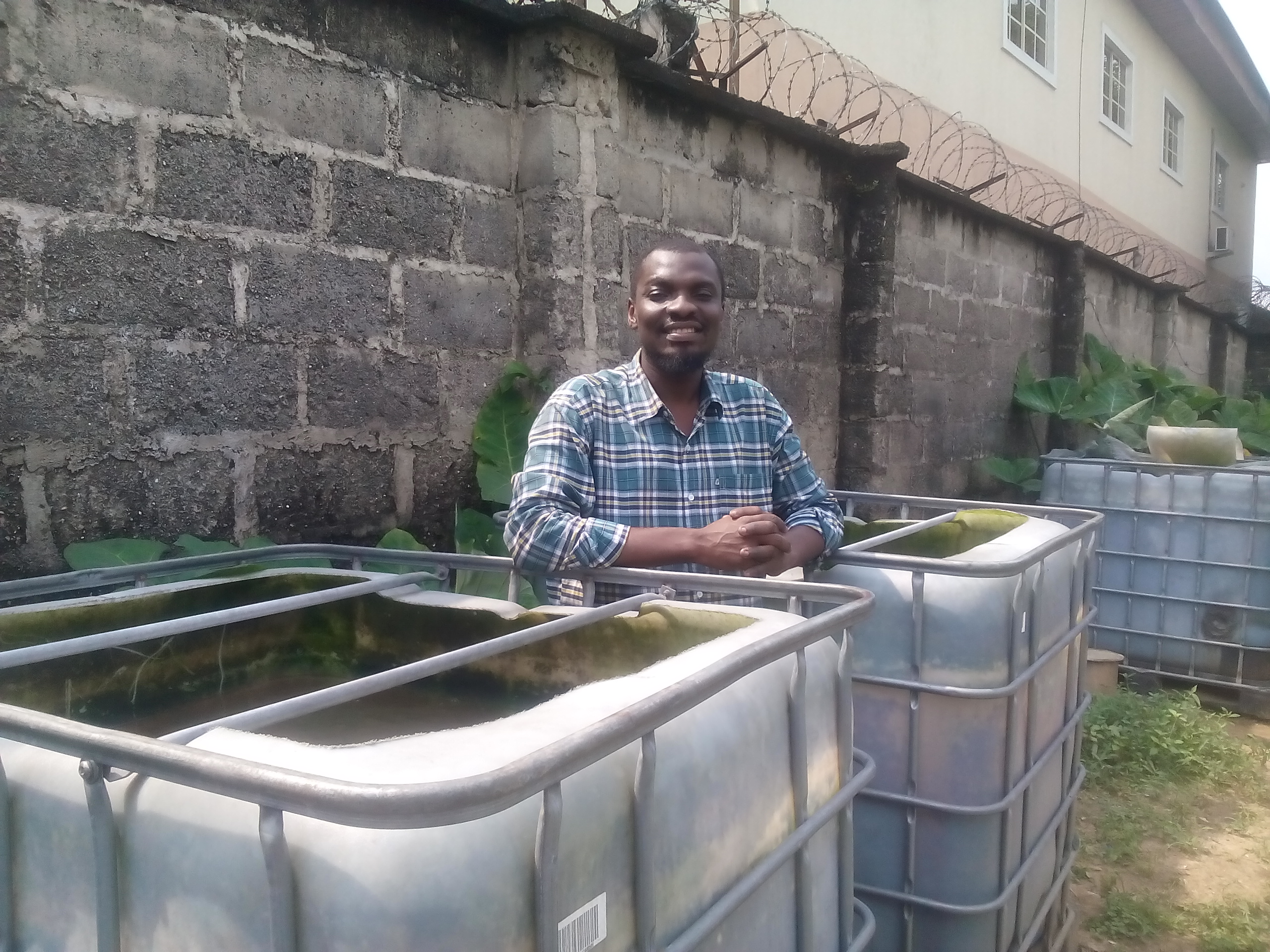I never expected to become a catfish farmer, though I’m not all surprised that I wound up in agriculture. I’ve always been around farms—so it was natural that I’d make it my life’s work here in Nigeria.
Unfortunately, many of Africa’s young people don’t recognize the same opportunity. Many don’t know how to get started. Lots think that it’s old fashioned. Others worry about the challenges of finance and infrastructure.
 Yet we all see the need: Farmers are the key to Africa’s economic emancipation. We have an enormous amount of arable land, a large youth population, and a lot of catching up to do—untapped potential to feed a hungry world, if we’re willing to work hard and take up new technologies.
Yet we all see the need: Farmers are the key to Africa’s economic emancipation. We have an enormous amount of arable land, a large youth population, and a lot of catching up to do—untapped potential to feed a hungry world, if we’re willing to work hard and take up new technologies.
My maternal grandfather had a palm plantation, and my grandmother helped him process the palm fruit, turning it into the oil that she sold. They also grew cassava and yams. As a boy, I visited them on holidays and went to the farm with them every day. I saw that the villagers held my grandfather in high regard because he helped them acquire improved seedlings and taught techniques such as grafting.
I also helped my parents grow food. One of my most vivid memories involved catching the colorful moths that always hatched from the bags of maize we kept in our house. They were beautiful. They were also pests, though as a child I didn’t know this.
As a young man, I took up a completely different kind of farming: I raise catfish in Port Harcourt, in the Niger Delta on the southern coast of my country. Real-estate costs here are expensive—one of the most expensive in the nation—and so I had to get creative. I noticed that a local cable television station had open space within its transmission complex. I pitched the idea of a fish farm and the staff was receptive.
 We started with one pond and 500 fingerlings. Today, we have seven ponds and we’re getting ready to triple in size, moving onto new rented property and setting up processing units such as smoking kilns and freezing units.
We started with one pond and 500 fingerlings. Today, we have seven ponds and we’re getting ready to triple in size, moving onto new rented property and setting up processing units such as smoking kilns and freezing units.
One of the biggest benefits is that I get to be my own boss. I set the pace of my work and business, enjoying the flexibility of organizing my schedule to suit my needs.
I’m also helping to solve a problem. Something like one in four Africans currently goes hungry and suffers from malnutrition. In the years ahead, the problem threatens to grow even worse, as Africa will add more than 1 billion people between now and 2050.
To feed these masses, we’re going to need a lot of farmers who know how to get the most from the land.
The good news is that we have the possibility of doing a lot better. If we can become as productive as farmers in the developed world, we’ll meet our continent’s big challenges.
 The bad news is that those challenges are enormous. They include limited access to funding, poor roads that link farms to cities, and a lack of mechanization. Some smallholder farmers must even confront nomadic herdsmen whose cattle eat their crops, brewing deadly clashes.
The bad news is that those challenges are enormous. They include limited access to funding, poor roads that link farms to cities, and a lack of mechanization. Some smallholder farmers must even confront nomadic herdsmen whose cattle eat their crops, brewing deadly clashes.
Worst of all may be the perception, especially strong among young people, that a life in agriculture is undesirable.
If they could see what I see everyday, many of them would change their minds. They’d learn that farming is a business that both needs and rewards creative entrepreneurs. They’d also discover that farming is on the verge of a digital revolution. Their comfort with smartphones puts them in an excellent position to flourish.
Perhaps at some point we’ll even have access to the GMOs that have helped farmers in the developed world fight pests and drought—two of agriculture’s biggest enemies, in rich and poor societies alike.
I’m fully engaged in the outreach, developing business support services, launching a crowd-funded investment venture called Peterscoin, and promoting Agric Rocks, which encourages farming through arts, entertainment, and technology.
I have big ambitions for myself, but even bigger ones for my country and my continent. We have a lot to do. We just need to find the people who are willing to do it—or at least willing to give it a try.


We do not need GMO crops in Africa to live. Also, stop applying lots of chemicals on our beautiful land like other countries around us. Their crops are no more palatable… Let’s find natural ways to replenish our soil and keep our crops.
[…] In Nigeria farming needs and rewards creative agripreneurs – Chibuike Emmanuel: […]